PERINATAL COUNSELING SUPPORT FOR FAMILIES
Towards a more connected home as you welcome your baby!
The perinatal period, extending from conception to one year after childbirth, has unique joys and challenges. Perinatal Mood and Anxiety Disorders (PMADs) don’t discriminate. Symptoms can occur anytime during pregnancy on in the year after childbirth. You might develop the following disorders and symptoms:
|
Perinatal Disorders |
Perinatal Symptoms |
|
|
Although mothers are vulnerable to PMADs, 1 in 10 fathers develops depression during the perinatal period. Therefore, the best perinatal care should address mothers, fathers, and families both individually and relationally. The urgency for perinatal care is increased by the following risk factors:
|
Individual Risk Factors |
Systemic Risk Factors |
|
|
You are not alone! We are here to support your family through this time.
Three distinct phases of the perinatal period are important times during which to consider seeking help!
- Pre-conception
- Pregnancy
- Post-pregnancy
- Pre-conception: This period begins when you decide to have a baby. We help families assess readiness and plan to increase individual and relational resilience and stability. Parents receive care as individuals and as couples—strengthening their home base and increasing their mental and emotional resources during a potentially complicated and trying time. If you are thinking of having a baby and you have lingering concerns about being a parent due to a history of trauma and complex family-of-origin issues past or present, reach out to us for counseling to help you resolve your fears / concerns before your journey of parenthood begins.
- Pregnancy: This is an exciting time, full of unique joys, but also presenting challenges to self-care and a couple’s stability. With individual sessions, we help expecting mothers meet their self-care needs, providing support against depression, anxiety, and emotional overload. Simultaneously, with couples counseling, we help couples increase their resilience and preparedness of the relationship, while, with family therapy, we welcome others in your family system, like grandparents, uncles, and aunts to become part of a better-informed support structure for expecting parents during pregnancy and after childbirth.
- Post-pregnancy: This period’s most commonly known challenge for mothers is the ‘baby blues,’ or post-partum depression triggered by hormonal as well as emotional shifts. But mothers and fathers are equally challenged by adjusting their lives to the reality of a baby. During post-pregnancy, we continue to meet the individual as well as relational needs of your expanded family.
Wherever you are in your struggle, we are here to help you and your family feel connected through this whole experience.

